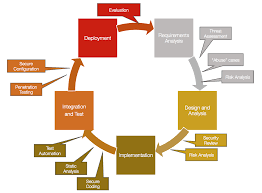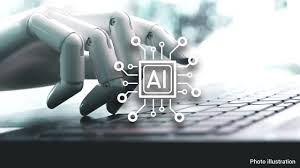Unlocking the Power of Personal AI: A Guide to Customized Technology Solutions
Understanding Personal AI: The Future of Personalized Technology
In the rapidly evolving world of technology, Personal AI is emerging as a transformative force. It promises to revolutionize how individuals interact with digital devices and manage their daily lives. But what exactly is Personal AI, and how can it benefit users?
What is Personal AI?
Personal AI refers to artificial intelligence systems designed to cater to individual needs and preferences. Unlike traditional AI, which often serves broader business or industrial purposes, Personal AI focuses on enhancing personal productivity, well-being, and convenience.
This technology learns from user interactions, adapts to preferences, and provides personalized recommendations. Whether it’s managing schedules, offering health advice, or curating entertainment options, Personal AI aims to make life easier and more efficient.
Key Features of Personal AI
- Customization: Personal AI systems are tailored to understand individual user behaviors and preferences. This allows them to offer bespoke solutions that fit specific needs.
- Continuous Learning: These systems utilize machine learning algorithms to continually improve their understanding of the user over time.
- Proactive Assistance: By anticipating needs before they arise, Personal AI can offer proactive suggestions or reminders that enhance productivity.
- Privacy Focused: As these systems handle sensitive personal data, they prioritize user privacy and data security through advanced encryption methods.
The Benefits of Personal AI
The integration of Personal AI into everyday life offers numerous advantages:
- Enhanced Productivity: By automating routine tasks such as scheduling appointments or managing emails, users can focus on more important activities.
- Improved Health Management: With features like fitness tracking and personalized health tips, individuals can maintain better health habits tailored specifically for them.
- Simplified Decision Making: From recommending the best route for a commute to suggesting meal plans based on dietary preferences, Personal AI aids in making informed decisions quickly.
- A More Personalized Experience: Entertainment options such as music playlists or movie recommendations become more aligned with personal tastes.
The Future of Personal AI
The potential for growth in the field of Personal AI is immense. As technology advances, these systems will become even more intuitive and integrated into various aspects of daily life. Innovations in natural language processing will enable more seamless interactions between humans and machines.
The future may also see increased collaboration between different personal AIs across platforms, creating a unified digital ecosystem that further enhances user experience. However, this evolution will require ongoing attention to ethical considerations such as data privacy and algorithmic bias.
Conclusion
The rise of Personal AI represents a significant leap forward in personalized technology. By focusing on individual needs and offering tailored solutions, it has the potential to transform how people live and work. As this technology continues to evolve, it holds promise for a future where digital tools are not only smarter but also more attuned to human needs than ever before.
If embraced responsibly with an emphasis on privacy and ethical use, Personal AI could become an indispensable part of everyday life—enhancing productivity while ensuring a highly personalized experience for all users.
Top 5 Benefits of Personal AI: Boosting Productivity, Health, and Daily Life
- Enhanced productivity through task automation
- Personalized health management and fitness tracking
- Simplified decision-making with tailored recommendations
- Improved user experience with personalized entertainment options
- Increased efficiency in daily routines through proactive assistance
Top 6 Concerns About Personal AI: Privacy, Bias, and More
- Privacy Concerns
- Dependency on Technology
- Algorithmic Bias
- Limited Understanding of Context
- Security Vulnerabilities
- Reduced Human Interaction
Enhanced productivity through task automation
Personal AI significantly enhances productivity by automating routine tasks, allowing individuals to focus on more meaningful activities. By handling everyday responsibilities such as scheduling meetings, organizing emails, and setting reminders, Personal AI reduces the cognitive load on users. This automation not only saves time but also minimizes human error in task management. With mundane tasks efficiently managed by AI, individuals can allocate their energy towards strategic decision-making and creative pursuits. As a result, Personal AI empowers users to achieve more in less time, boosting overall productivity and efficiency in both personal and professional spheres.
Personalized health management and fitness tracking
Personal AI has significantly advanced personalized health management and fitness tracking by offering tailored solutions that cater to individual needs. By analyzing data from wearable devices and health apps, Personal AI can provide users with customized workout plans, nutrition advice, and health insights that align with their specific goals and lifestyles. This technology not only tracks physical activity and monitors vital signs but also adapts recommendations based on progress and changing circumstances. As a result, individuals can achieve better health outcomes through a more informed approach to fitness and wellness, all while enjoying the convenience of having a virtual personal coach at their fingertips.
Simplified decision-making with tailored recommendations
Personal AI significantly enhances decision-making by providing tailored recommendations that align with individual preferences and needs. By analyzing user data and learning from past behaviors, these intelligent systems can suggest options that are most relevant to the user, whether it’s choosing the best route for a commute, selecting a restaurant for dinner, or deciding on a financial investment. This personalized approach not only saves time but also reduces the stress associated with making choices by presenting well-informed options. As a result, users can make decisions with greater confidence and efficiency, knowing they have access to insights specifically curated for them.
Improved user experience with personalized entertainment options
Personal AI significantly enhances user experience by offering personalized entertainment options tailored to individual preferences. By analyzing a user’s past behavior, interests, and feedback, these intelligent systems can curate music playlists, recommend movies or TV shows, and even suggest new books or podcasts that align with the user’s unique tastes. This level of customization not only saves time by eliminating the need to sift through vast amounts of content but also introduces users to new genres and creators they might not have discovered otherwise. As a result, personal AI transforms entertainment consumption into a more enjoyable and engaging experience, ensuring that every recommendation feels relevant and exciting.
Increased efficiency in daily routines through proactive assistance
Personal AI significantly enhances efficiency in daily routines by providing proactive assistance tailored to individual needs. By learning from a user’s behaviors and preferences, these intelligent systems anticipate tasks and offer timely reminders or suggestions, effectively streamlining everyday activities. For instance, a personal AI might automatically adjust the thermostat based on the user’s schedule, suggest optimal routes for commuting to avoid traffic, or organize emails by priority. This anticipatory approach not only saves valuable time but also reduces decision fatigue, allowing individuals to focus on more critical tasks and enjoy a smoother, more organized daily routine.
Privacy Concerns
Privacy concerns are a significant drawback of Personal AI systems, as they often collect and store sensitive personal data to provide tailored services. This data can include information about an individual’s habits, preferences, health metrics, and even location details. The accumulation of such detailed personal information raises serious issues about security and the potential for misuse. Unauthorized access or breaches could lead to identity theft or other malicious activities. Additionally, there is concern over how companies might use this data for targeted advertising or share it with third parties without explicit user consent. As Personal AI becomes more integrated into daily life, ensuring robust data protection measures and transparent privacy policies will be crucial to maintaining user trust and safeguarding personal information.
Dependency on Technology
One significant drawback of Personal AI is the potential for increased dependency on technology, which can lead to a decline in critical thinking skills and self-reliance. As individuals increasingly rely on AI systems to make decisions and manage tasks, they may become less inclined to engage in problem-solving and independent decision-making. This overreliance can erode essential cognitive skills, as people might defer to AI recommendations without questioning or analyzing them. In the long term, this dependency could hinder personal growth and adaptability, making it challenging for individuals to navigate situations that require independent thought and initiative without technological assistance.
Algorithmic Bias
Algorithmic bias is a significant concern when it comes to Personal AI systems, as these biases can manifest in the recommendations or decisions made by the AI. This occurs because the algorithms are often trained on historical data that may reflect existing societal inequalities or prejudices. Consequently, Personal AI could inadvertently perpetuate these biases, leading to outcomes that are unfair or discriminatory. For instance, if an AI system is used for job recruitment and is trained on biased data, it might favor certain demographics over others, thus reinforcing existing disparities. Moreover, if a user’s preferences are influenced by biased content, the AI might continue to present similar content, further entrenching those biases. Addressing algorithmic bias requires careful consideration of data sources and ongoing efforts to ensure fairness and inclusivity in AI development.
Limited Understanding of Context
One notable drawback of personal AI is its limited understanding of context, which can lead to significant challenges in accurately interpreting complex human emotions and nuanced situations. While these systems are designed to learn from user interactions, they often lack the depth of comprehension required to fully grasp the intricacies of human communication. This limitation can result in misinterpretations or inappropriate responses, particularly in context-specific scenarios where subtle emotional cues are crucial. For instance, a personal AI might misjudge the tone of a message or fail to recognize sarcasm, leading to responses that feel out of place or insensitive. As a result, users may experience frustration or misunderstandings, highlighting the need for ongoing advancements in AI’s ability to process and respond to human emotions more effectively.
Security Vulnerabilities
Security vulnerabilities present a significant concern in the realm of Personal AI. As these systems handle sensitive personal data and become increasingly integrated into daily life, they become attractive targets for hackers. Exploiting weaknesses in the software or network, malicious actors could gain unauthorized access to private information such as financial details, health records, or personal communications. Additionally, hackers might manipulate the AI’s behavior to mislead users or disrupt services, posing risks not only to individual privacy but also to overall security and trust in digital systems. Ensuring robust security measures and regular updates is crucial to protect against such threats and maintain user confidence in Personal AI technologies.
Reduced Human Interaction
Excessive reliance on Personal AI for social interactions or emotional support can lead to a significant reduction in genuine human connections. As individuals increasingly turn to AI companions for conversation and comfort, they may find themselves engaging less with family, friends, and colleagues. This shift can result in a decline in empathy and understanding, as authentic emotional exchanges are replaced by algorithm-driven responses. Over time, the richness of human relationships may erode, leading to feelings of isolation and a diminished capacity for meaningful interpersonal communication. Balancing the convenience of Personal AI with the irreplaceable value of human interaction is crucial to maintaining strong social bonds and emotional well-being.








